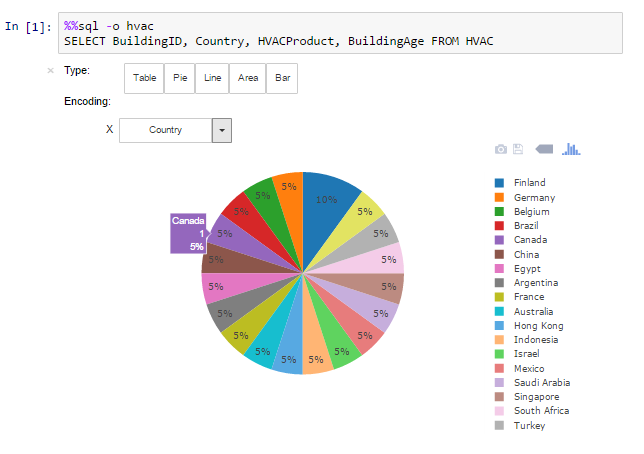Jupyter, formerly IPython, is more than just an execution environment for Python, R, and many other languages. With code, markdown, inline graphics, and more features, it provides a convenient, browser-based canvas for prototyping, collaborating, and sharing ideas. This environment has been embraced by the community and for good reason; it allows individuals to rapidly prototype and get to results. At Microsoft, we believe Project Jupyter has fundamentally transformed the world of tooling and have even went as far to donate to the project to help ensure its success.
Many teams at Microsoft are using Jupyter. From engineers in Bing doing data analysis; to machine learning data scientists in Azure ML Studio; to the Azure Notebooks team providing a Jupyter Notebook experience hosted on Microsoft Azure; to integration work in Python Tools for Visual Studio (PTVS). The Cortana Analytics Gallery currently has a number of excellent notebooks for you view, such as notebooks on Deploying Azure ML Services from Jupyter, Topic Discovery in Twitter Tweets, or Working with Azure SQL Data Warehouse.
We have also started work on a Jupyter incubation project called sparkmagic, a Jupyter extension that allows you to interact with Spark clusters from your notebook.
Jupyter itself is evolving quickly; for example, the next major version of Jupyter is set to move beyond being a REPL and look closer to a complete IDE. Microsoft is in close partnership with the core team to track updates and is looking into how we can best leverage it in Azure. Please continue to check back here where we hope to have more in-depth blogs on these projects.



0 comments